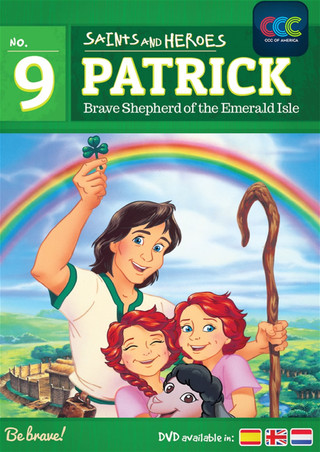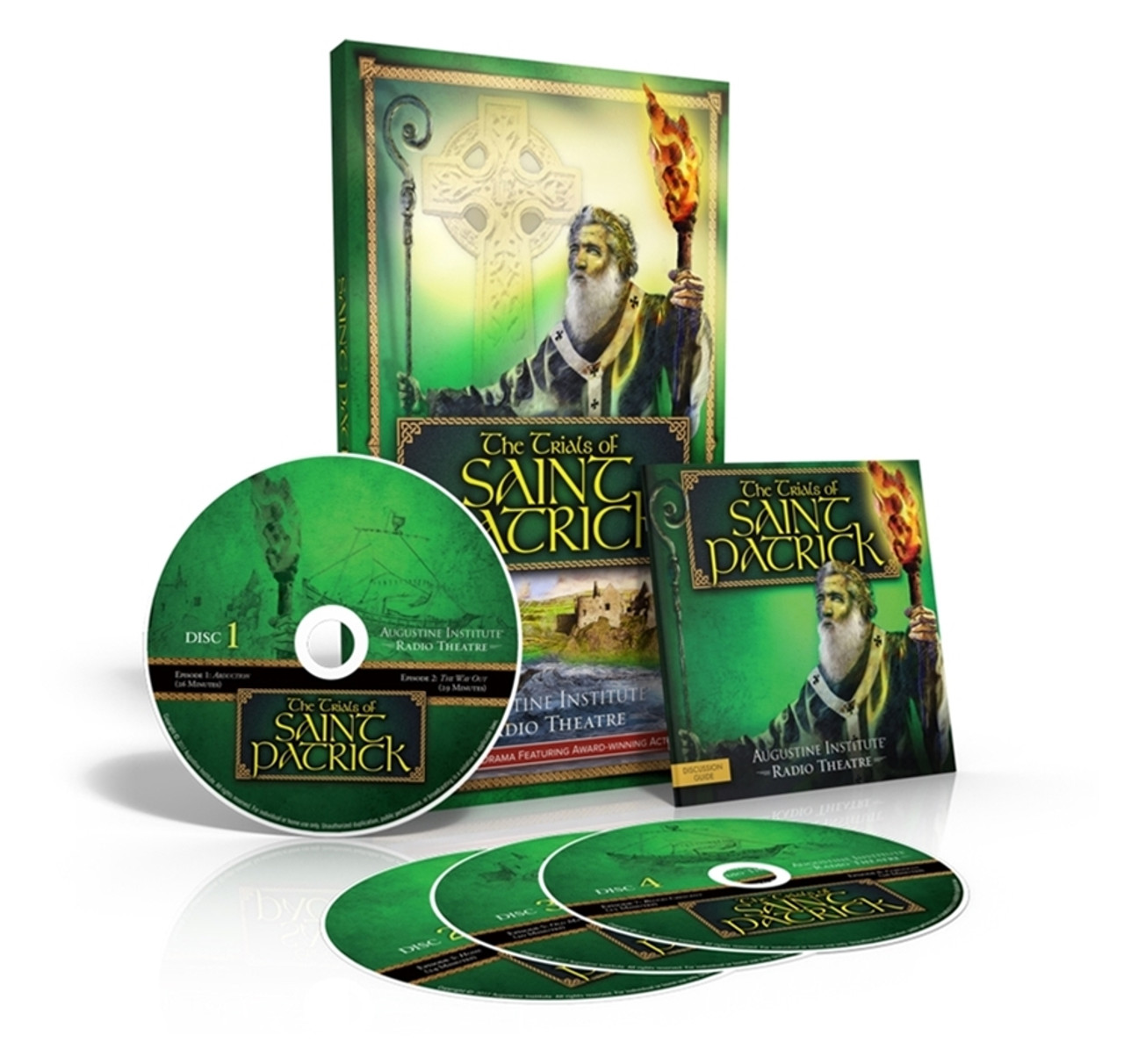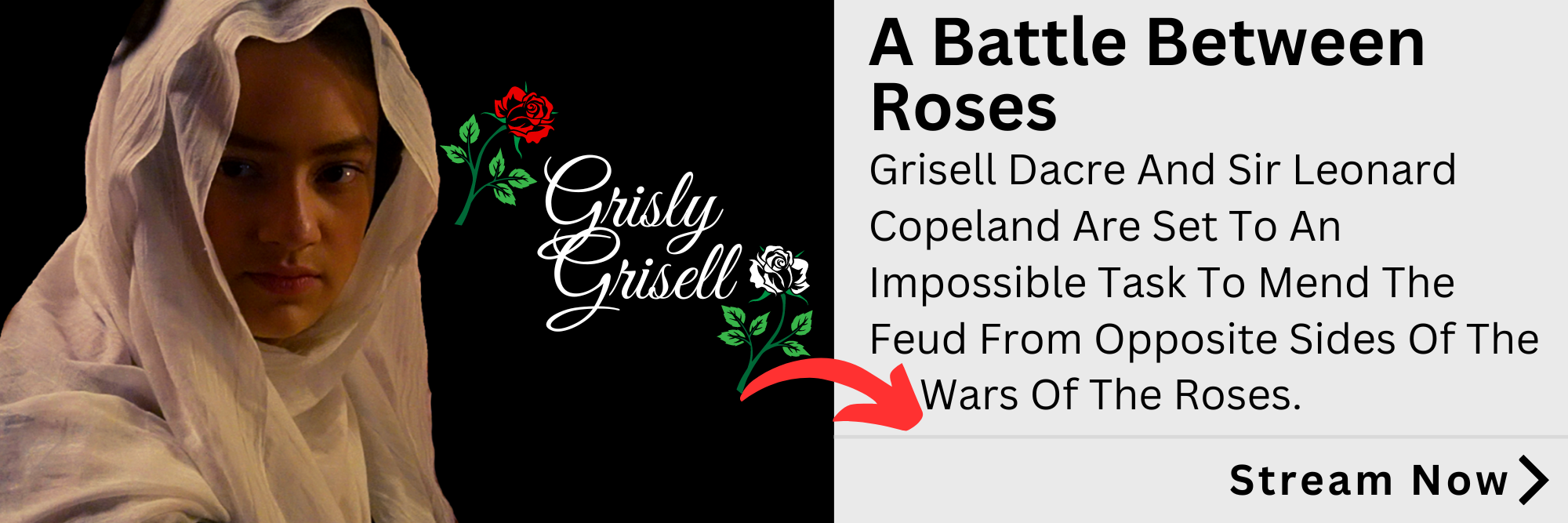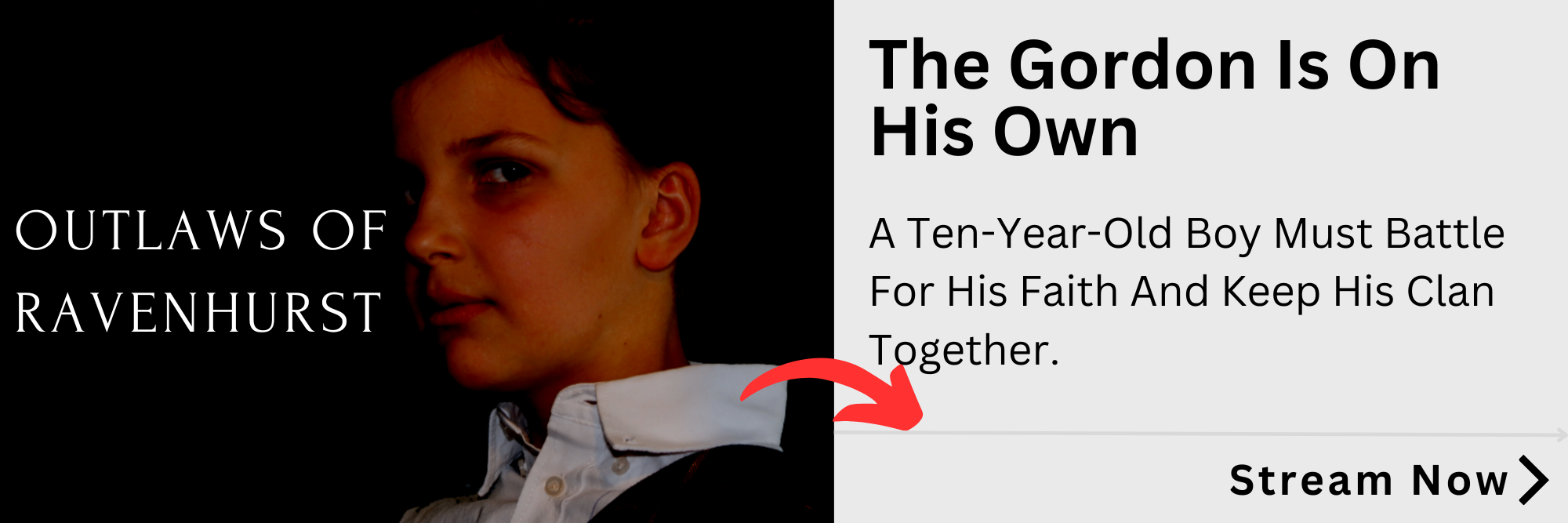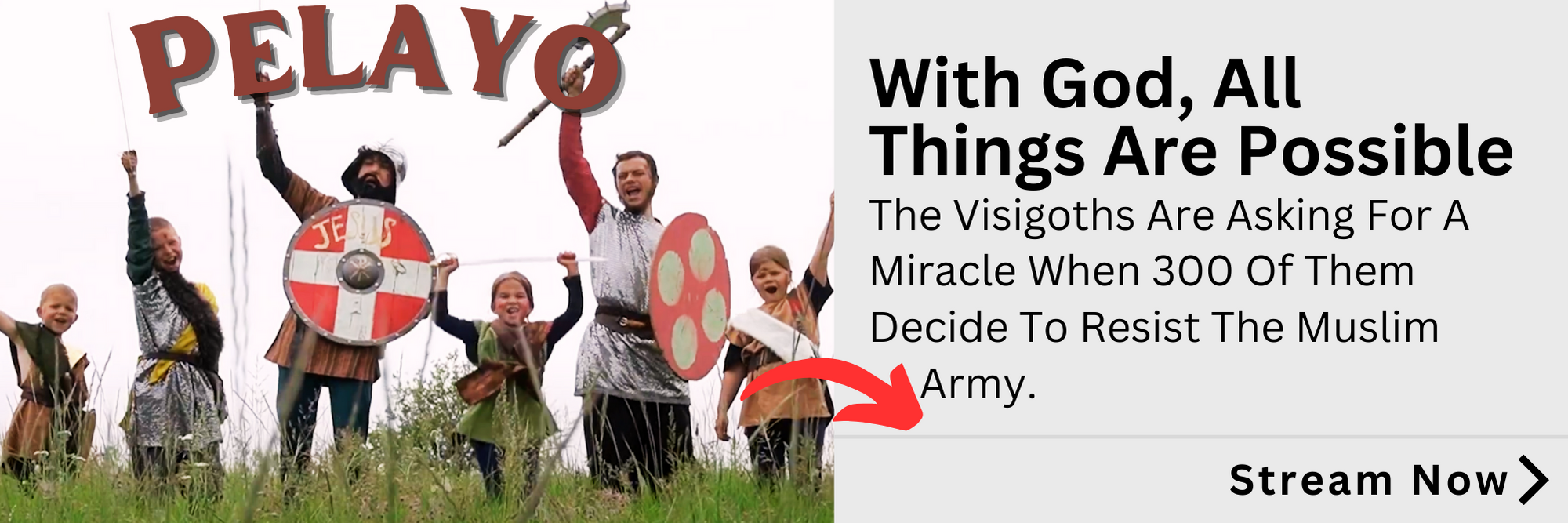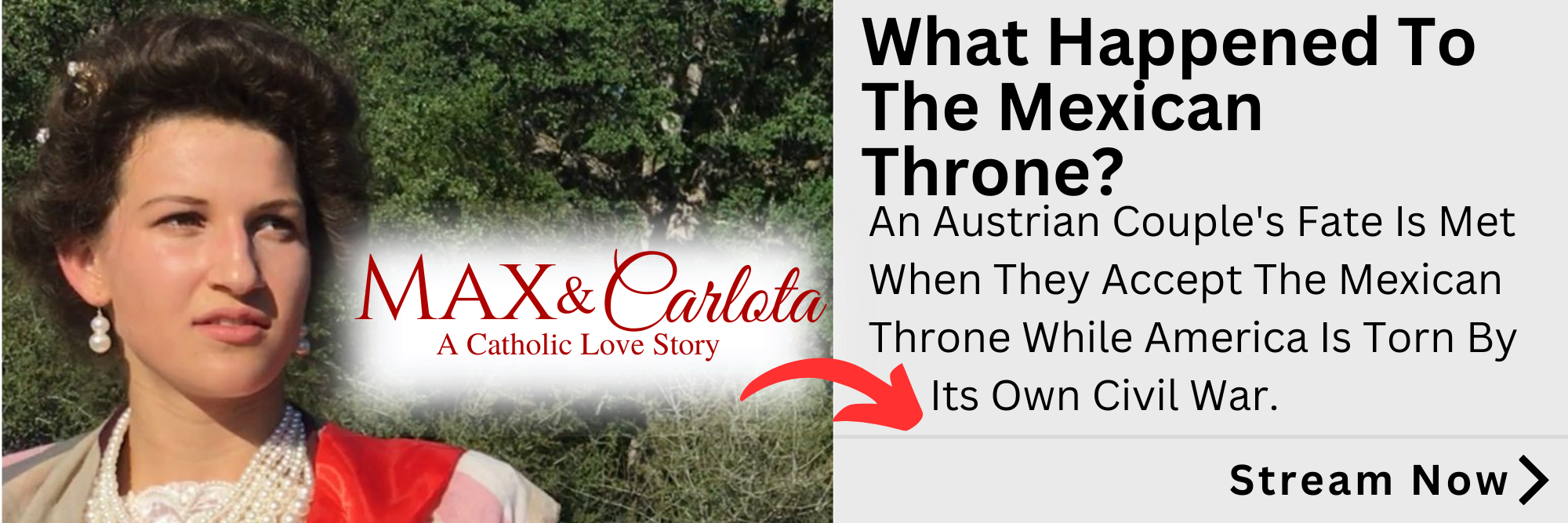Don't miss your chance to invest in 'Fabiola'!
Visit our crowd-funding page for our new production, "Fabiola"!
- Home
- Good Movies For Movie Night
- Movies to Avoid
Of All The Movies Out There Today, Here Are Some Movies To Avoid For Christian Families
There are so many movies out there today. And, frankly, most of them are movies to avoid. With all the options, it's hard to decide which ones are worth watching and which ones are not. Here is a list of the movies you should absolutely NOT watch that may appear to be good according to their titles. They are placed on this page either for morality issues or direct attacks on the Catholic Church.
Movies To Avoid #1: I Am Patrick (2020) "Peels Back Centuries Of Legend" By Telling A Modernist Version Of The Apostle Of the Emerald Isle's "True Story", Ignoring Catholic Traditions About Him
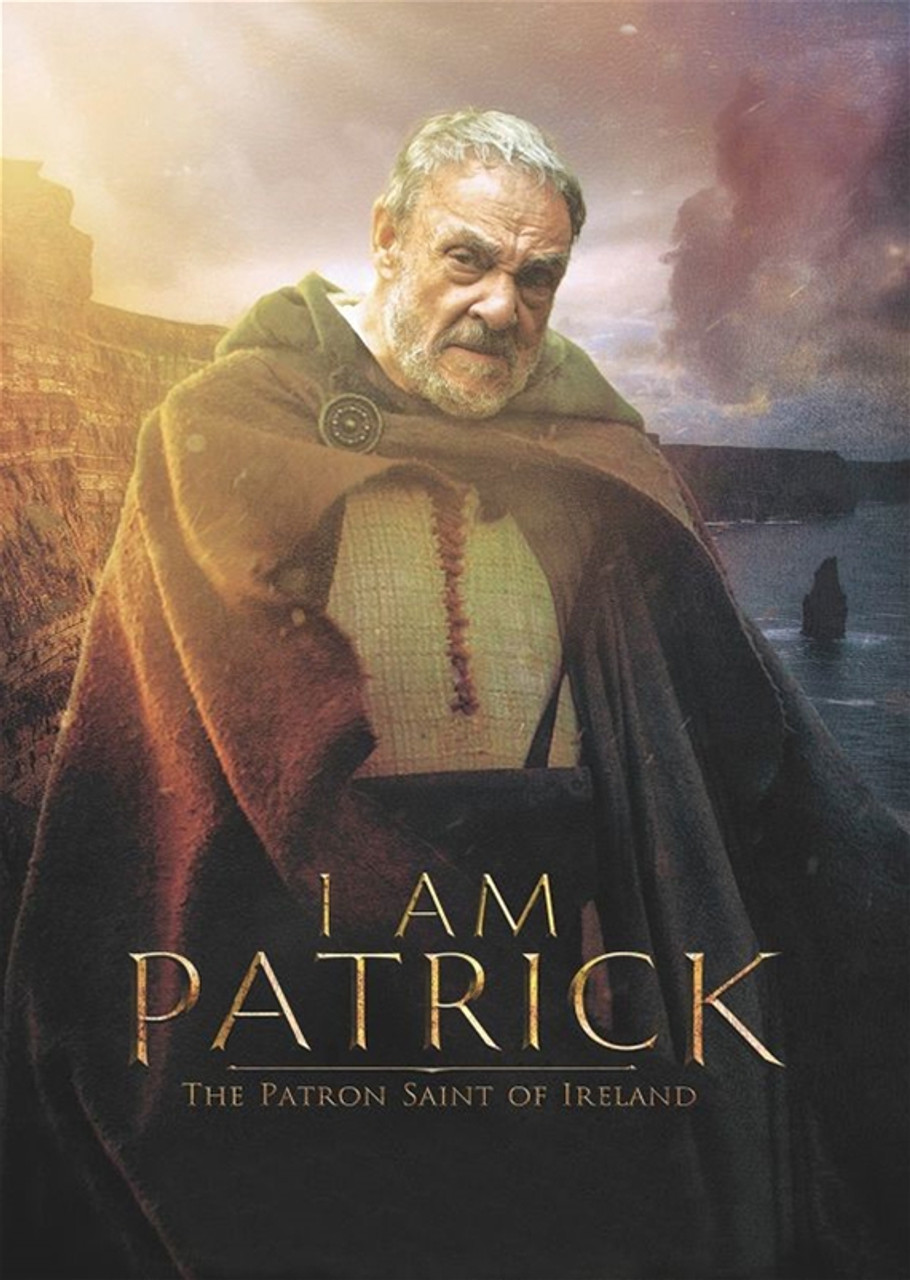
I was really looking forward to watching this DocuDrama starring John Rhys-Davies as the older St. Patrick and Seán T. Ó. Meallaigh as the younger St. Patrick. It was with great disappointment that I viewed it and found it lacking.
The "professionals" interviewed seem to come from an angle of admiration using the screen that "that was a time when everyone was superstitious, that's why he believed all that." This is insulting because the Catholic Church is the same then, now, and forever. We believe the same way Patrick believed.
There also was a very loud portrayal of the saint only receiving the Precious Blood as a lay person and the priest facing the people for Mass. Although the Precious Blood was probably quite intentional, the priest facing the people may have been just bad research. But I don't think so.
There were also very Anti-Catholic terms describing Patrick's mission, like "apprenticeship" (seminary training), "clerics" (priests and bishops), "ministry" (missionary work). He is also shown as preforming social work as part of his "ministry" before he leaves Britain.
This implies a more modern view of "clerics" having that as part of their duties. Although it is very desirable for priests to be generous and care for the poor, it is not a strict part of their role as priests. They are primarily confessors and the celebrants of the Holy Sacrifice of the Mass.
The interviews said that he may have prayed the Mass in Gaelic (unlikely, but maybe). This is a point of contention because Mass was only prayed in Latin at this period of history. It wasn't until very recently that a Modernist slant has taken hold of the Church hierarchy and the language of the land became the norm for Mass. Portraying Patrick as speaking the Gaelic language to celebrate Mass is only asking him to agree with a modern portrayal of the ancient Church.
In addition, the traditions of St. Patrick driving the snakes out of Ireland and his preaching with a shamrock as an analogy describing the Trinity were also both dismissed as myths in the beginning of the film.
With all these points being shown in the film, it really serves to demean the Traditional Catholic Faith. We love St. Patrick. We love celebrating his feast day with Irish karaoke, St. Patrick coloring pages, "green eggs and ham". My Great-grandma Patricia was Irish and instilled Irish pride in all of her children and grandchildren. My entire family was very disappointed with the portrayal of one of our favorite saints in I Am Patrick.
Want To Find Something Better To Watch Instead Of I Am Patrick? Here Are A Few Alternatives:
Patrick: Brave Shepherd of the Emerald Isle
Patrick: Brave Shepherd of the Emerald Isle is the most endearing film I have ever seen of St. Patrick. This short film celebrates the saint without any contradictions to truth or tradition. The entire Saints and Heroes series can be watched on PureFlix!
The Trials of Saint Patrick
The Trials of Saint Patrick is an amazing dramatized story about the Apostle of the Emerald Isle. Also starring John Rhys-Davies and Seán T. Ó. Meallaigh (coincidentally or purposefully I know not), this audiobook faithfully tells the story we are used to hearing in a way never told before.
Movies To Avoid #2: Fátima (2020)
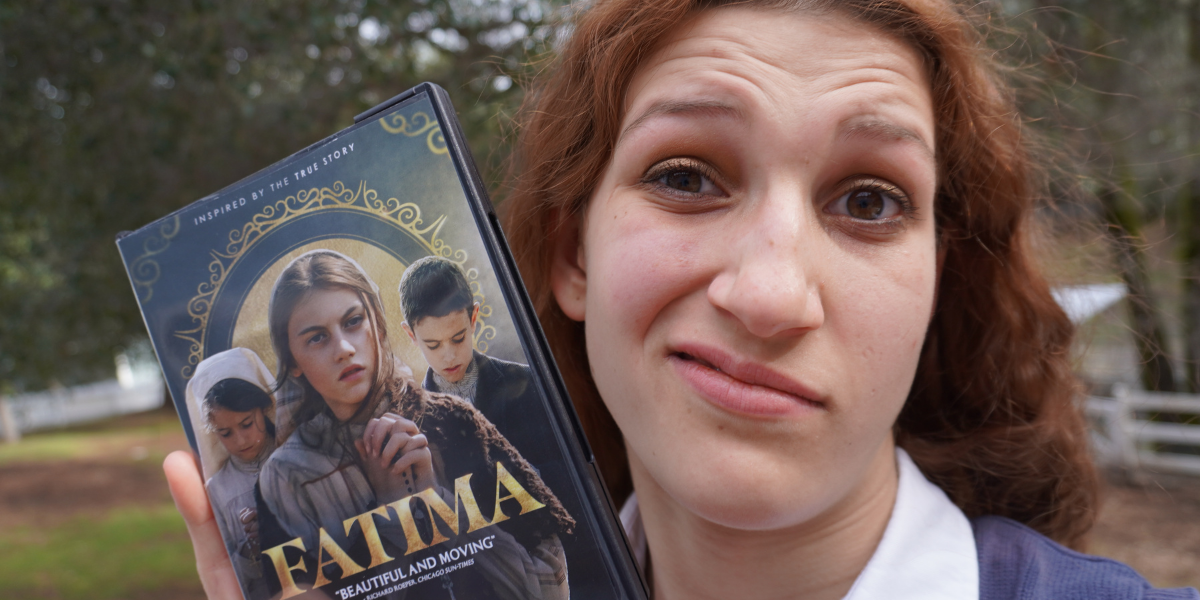
For Christmas 2020, I bought each one of my brothers and sisters a movie. The one I gave to my ten-year-old brother was the 2020 Fátima.
I was so excited about it because I was glad to hear that there were other moviemakers who were interested in making movies with Catholic stories. But my hopes were soon to be shattered. Sadly, it ended up on my list of movies to avoid.
As we watched the movie, it became more and more clear that it was pushing a modern agenda with progressivism standards of "peace and love". It followed the right chronological order with the right apparition with the right date...but that was about it.
Twisted Message
The Angel of Peace and the Blessed Virgin brought the same tone of peace. It was not the true message of Fatima "Pray for the conversion of poor sinners," but rather a "peace at all costs" message. The consecration of Russia to Mary's Immaculate Heart, which was the true purpose of Mary's apparitions to the children at Fatima, was not once mentioned in the entire film.
Fabricated Content
From a moviemaking standpoint, it is clear that parts of the story were fabricated in order to enhance the drama of the story. This was a story, however, that does not need the added drama of personal made-up troubles to add weight to the true story.
Lucia is portrayed as a young, slightly neglected shepherd girl from a "holier-than-thou" family. Her mother's main concern is Lucia's older brother, her only son who is fighting in the war.
This obsession over the son causes her to overlook Lucia. When Lucia starts telling people that she has had visions of the Blessed Virgin, her mother takes it as a personal attack and tells Lucia to, "Stop making fun of me!" It is as though the message is more for Lucia's mother than for the world.
Dreamy Lucia
The neglect of the mother also plays into a discrediting of Lucia. When the mayor of the city is questioning the children, he says that perhaps Lucia, missing the affection of her mother, "One day you were feeling lonely and hurt, and you imagined another mother." This statement coincides with the many times Lucia is portrayed as being a bit of a dreamer and imagines things that haven't happened.
For instance, when she is told that perhaps the lady she has seen is the devil's daughter, she dreams that the statue of Our Lady in the church beckons her to the statue and then the serpent tries to bite her. Not only does such a dream undermine the fact that the devil has no power in a consecrated church, but it also shows Lucia in a spacey light which makes it very likely that she has invented the story of the lady.
This is very heartbreaking, because throughout her adult life Sister Lucia was treated like she had a very active imagination which caused her to confuse what was revealed by Divine Providence and what she herself imagined. The movie portraying this Lucia is unfair and seems to agree with those opposed to Our Lady of Fatima's message.
Unrealistic Close Shots
From a very purely stylistic viewpoint, and therefore of much less importance, the shots are awkward. Shots uncomfortably close to eyes and lips appear often in this film. It makes it very dramatic and yet hard to watch because a viewer feels like he is constantly shoved up into characters' faces to get a good look at the noses, lips and eyes of the actor.
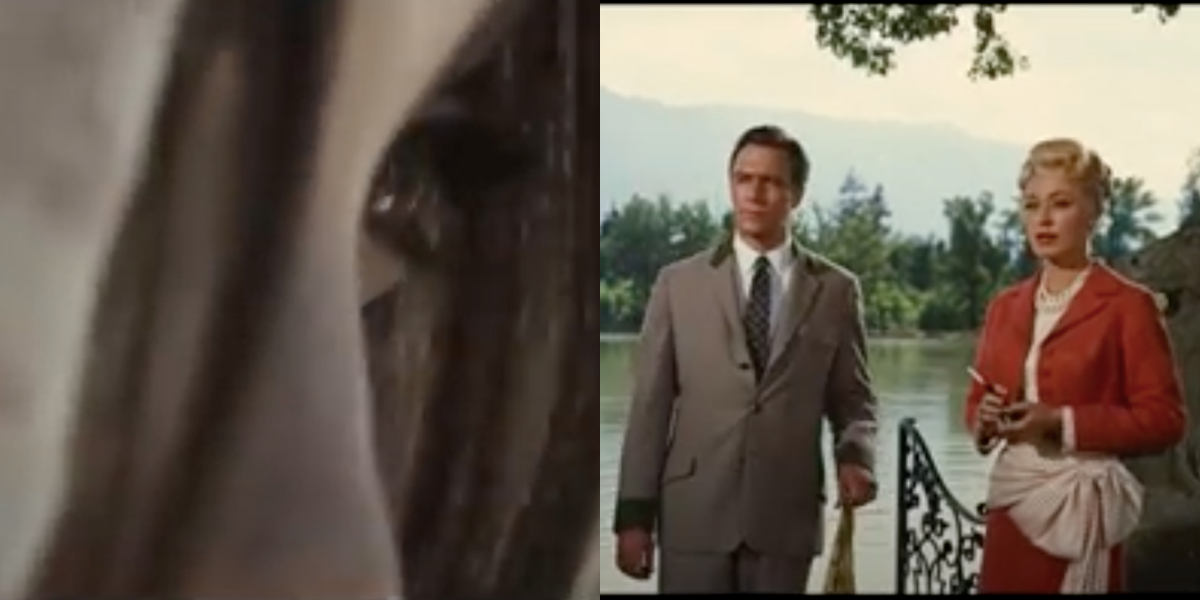 The uncomfortably close shot of Mary's eye in Fátima as compared to a much more comfortable medium shot from The Sound of Music.
The uncomfortably close shot of Mary's eye in Fátima as compared to a much more comfortable medium shot from The Sound of Music.Far from making the audience feel like they are there and another one of the characters, he feels like a tiny floating spec who is able to be in places altogether too small for a person to be. This does not add to the believability of the film, but instead, adds to its feeling of unrealistic shots.
Fátima Review Bottom Line:
This movie plays into the recreating of the Catholic Church which is a "Church of Accompaniment" by avoiding the true story of Fatima. The story does not follow the real lives of the shepherd children of Fatima, but fictional characters with the same names and similar events. It is a true danger to those who do not know the true story of Fatima. That is why it had to go on my movies to avoid list.
Alternatives To Fátima
Heaven's Key To
Peace

A wonderful documentary containing the true story of Fatima as well as insights from the experts.
The Day the Sun Danced: The True Story Of Fatima

I just recently rewatched this episode and really enjoyed it. It stays really true to history and the Church approved story of what happened in Fatima.
Movies To Avoid #3 Pilgrim's Progress (2019)
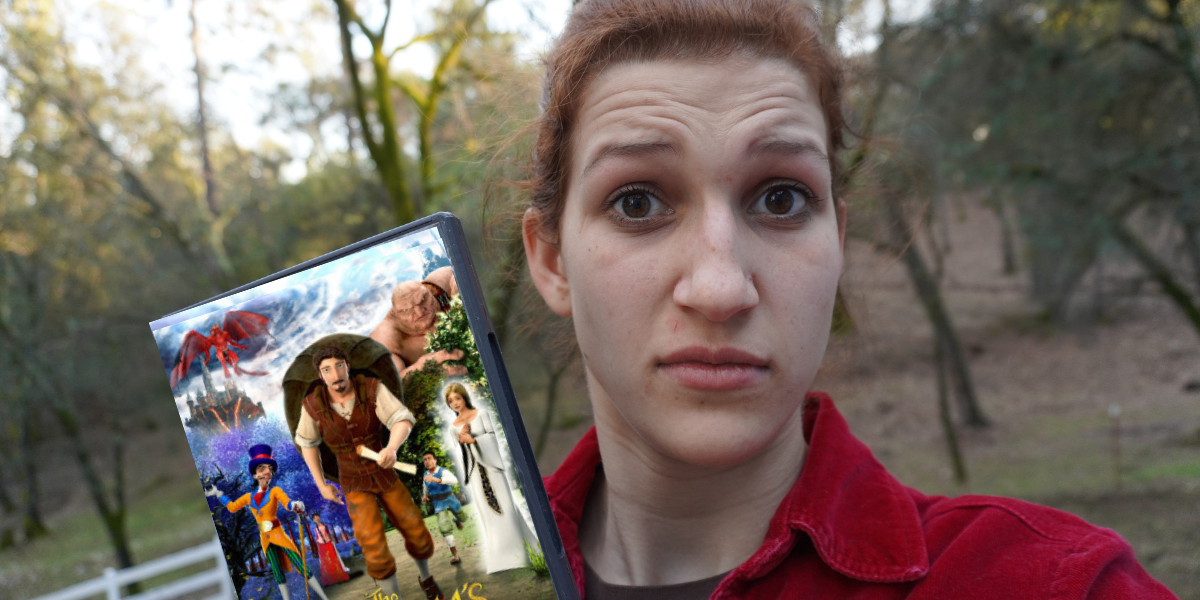
I have never read The Pilgrim's Progress, but I did watch this 2019 cartoon of this work. After having read The Divine Comedy and Beowulf, this film seems to be a mockery of both of these Catholic works. Definitely worthy of the movies to avoid group.
It follows the same storyline of a journey through the different worlds like in The Divine Comedy. The main character, Christian Pilgrim, fights a variety of beasts like in Beowulf.
It seems to be the author's goal to take the wonderful shape of these classic stories and make them take on a Calvinistic intent, which is exactly what the story does.
"Ciao, Family!"
Christian finds a book and begins to read it. This book convinces him to leave the City of Destruction (the world) and pursue the Celestial City (Heaven). His wife and sons are not so easily convinced.
In response, Christian leaves them behind to find the city on his own.
Hmmm. Where is the charity for your family? Why would any rational man leave his wife and family behind? This is a very foreign thought to Catholics. We believe in converting and helping others along the way. That is part of the call of marriage: to assist each other in the means to salvation.
What on earth?
Legality
On another note, one of the trials Christian faces is Legality, a mountain with a judge's hammer with which he pounds out laws.
These laws contradict one another and Christian gets more and more confused until Evangelist (his puritan-style dressed guide) carries him back to the road as Legality crashes down to the floor.
Evangelist then explains that as Legality falls they always land in the right road.
Legality is a picture of the Church. (What other religion has laws like we do.) Instead of a gentle mother who corrects her children for their own good, she is portrayed as an obedience demanding mountain who grows more and more demanding until her utter collapse.
As the dust of her collapse settles, man's eyes are unobstructed and he sees for himself the true way to salvation. The Bible (Evangelist) is the only true guide to God.
Wrong. Wrong. Wrong. I myself must speak out against so pointed an insult against Holy Mother the Church. It is the duty of any true daughter to defend her mother.
The River of Death?
In order for Christian to reach the Celestial City he must will his own death and plunge himself in the "River of Death". While the pilgrim is in the river, he is again tempted by the devil and then is surrounded by blood.
When Christian reaches the other side, he meets Jesus Christ. He explains to Christian that it was not his blood that surrounded him, but Christ's own.
I know that this is trying to follow washed in the blood of the Lamb thinking, but it is just a little too literal. Seeing someone swimming in blood does not make me feel fuzzy and Christian. It is just gross to me.
Pilgrim's Progress Alternatives
Although I cannot think of any films to watch as a substitute for this movie, I can suggest a few books.
The Divine Comedy
This one may sound intimidating, but The Divine Comedy is a really good read. Mark Musa's translation also includes a chapter synopsis for each chapter. I read this in eleventh grade and loved it. It is written like a story, so it is really not that hard to read. It is truly dedicated to Catholic teaching and well-worth reading.
Beowulf
Beowulf is another book which follows a warrior on his path to salvation. I really enjoyed reading this book which portrayed the temptations of the world, the flesh, and the devil as three different monsters which the hero of the tale must battle. I would suggest this book to anyone who likes a Christian adventure.
Movies To Avoid #4: Despicable Me (2010) By Father Carota
Note: I found this review on traditionalcatholicpriest.com. It is reprinted here. It was not originally written for IndustriousFamily.com and you can find the original by clicking the link above. According to Father Carota, it is to be ranked with the movies to avoid.
Today I was asking the children in catechism classes about "Minions". Most of them have seen the movie Despicable Me, Minion Mayhem.
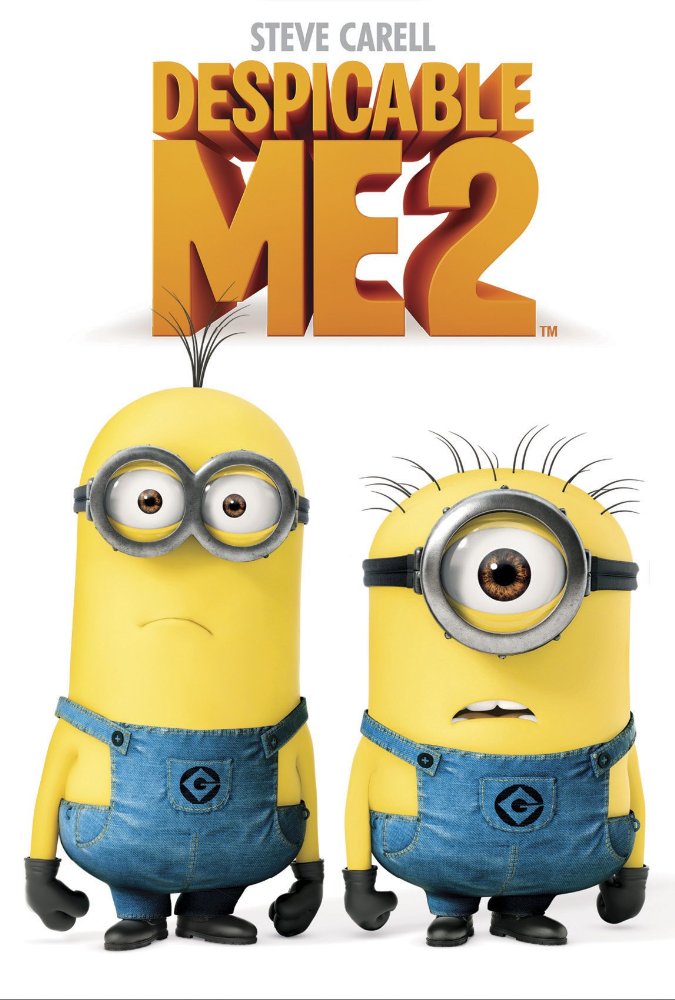
A promotion poster says: When the World Needed a Hero, They Called a Villain.
I have always heard about the saying from the Bible; the devil and his minions. So when, at another earlier event, some children asked me if "minions" were bad, I assumed they were talking about the devil's helpers. But no, they were talking about the little yellow minions from the movies and cartoons.
So I looked up on Wikipedia about minions. What I found is that minions are villains helpers. And besides the movies, there is a "Despicable Me Minion" ride attraction at Universal Studios in Florida.
It is described on Wikipedia in this way: The riders will be tested if they qualify to be minions and asked "if they are fully prepared to be so". They are given minion 3D goggles. They are welcomed by #1 SuperVillain. His children are said to be "trying to be evil" and use "the voice of an evil clown". Dr. Nefario is SuperVillain's sidekick. The word "nefarious" means sinful or evil.
There is a "zap gun" that turns humans into minions and are the riders the ride will have a body scan to see if there are any human genes left in them to be removed. They also tell the participants that "there will be no backing out". They use the word "henchman" too. The words, "are so doomed" are part of the ride.
What I am trying to say is that these movies are desensitizing our children to the idea of a villain as being bad or that the devil and his helpers are evil. Just as Hollywood introduced homosexuality in comedies, so now the devil and villains are being introduced by funny movies to our children.
On Wednesday evening catechism a girl came up to me to show me her drawing. It had a cross and a minion standing next to it. She likes crosses and minions. A few of the little boys strongly said they like the minions no matter what I said about them being bad.
May God help us to be alert to what is happening to our little children. You can not love God and the devil at the same time. Of course we traditional Catholics chose God and His angels over the devil and his minions. And we want to be saints not villains.
Despicable Me Alternatives
The Pirates Who Don't Do Anything
Even as an adult, I love VeggieTales. The stories are so witty and usually are parodies to commonly watched movies. The Pirates Who Don't Do Anything is based on The Pirates of the Carribean, and it is hilarious! With the three unassuming heroes to save the day, you'll be happy you signed on with Elliot, Sedgwick, and George as they make an effort to save a princess and overcome their greatest flaws. It's also available on PureFlix.
Jonah And The Whale

Another classic VeggieTale, Jonah and the Whale tells children the tale of compassion and mercy following the story of Jonah. Featuring the Pirates Who Don't Do Anything, join Larry, Mr. Lunt, Pa Grape, and Archibald on their adventure across the sea to Nineveh, where Jonah expects a vengeful punishment from God. He expects Him to "swipe Nineveh off the face of the oith (earth)". But Jonah finds that he must forgive the people as God forgave him.
Movies To Avoid #5: Becket (1964)
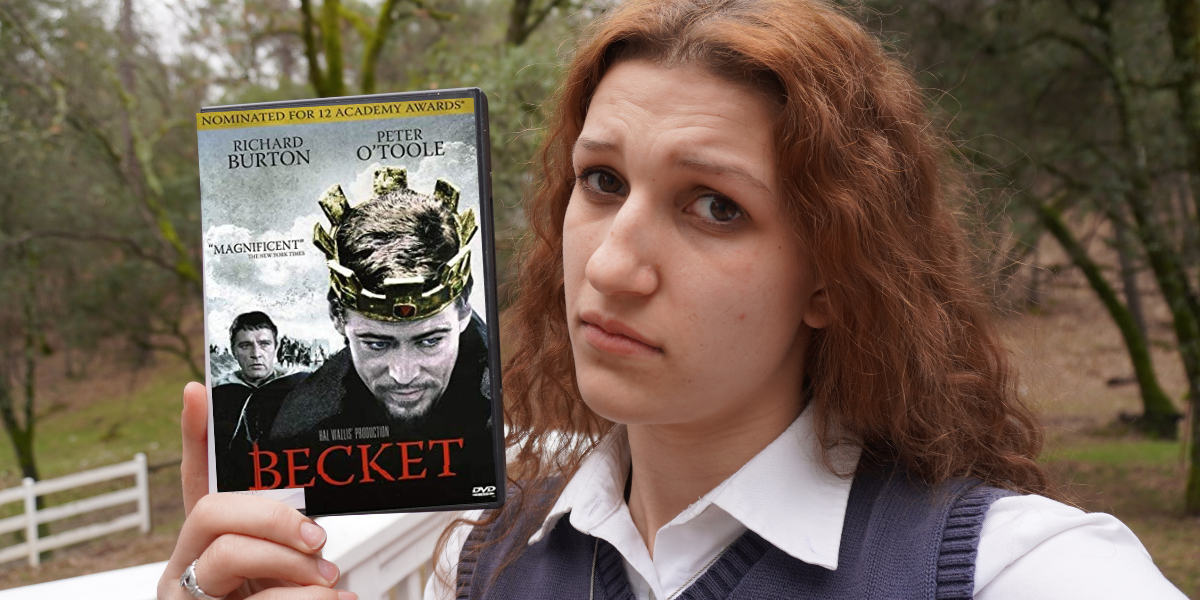
We bought this movie at our parish bookstore. And let me tell you: WHOA!! THIS IS NOT A FAMILY-FRIENDLY MOVIE! It isn't even suitable for adult Christians to watch.
With frequent scenes opposed to the sixth and ninth commandment, I need say no more. This is one of the most important movies on this list of movies to avoid.
Untrue And Unsightly Sins Portrayed
It seems as though this version of the St. Thomas Becket story was a bit confused between King Henry II and King Henry VIII. The king is shown several times committing sins against the sixth commandment.
These scenes are vivid and long. It is also all throughout the movie with the king's wife frequently complaining of his rashness. Whores are constantly spoken of by the king in lust. Eww!
Every time Henry II enters the scene the viewer is uncomfortable, wondering what he might do or say now.
Follows True Storyline Overall
The storyline itself is true. St. Thomas and Henry II are good friends, the seat of Archbishop of Canterbury opens and Henry appoints St. Thomas as the new Archbishop. After he is appointed, St. Thomas takes his position seriously and resists the king's wishes to encroach on Church rights.
This leads the mad king to the point of despair when he vocally wishes for St. Thomas' death. Powerful statesmen fulfill his wish and murder St. Thomas on the altar steps of his cathedral. When the king finds out, he is heartbroken and has himself scourged for causing such a crime.
All of this is very powerful in the film, but the makers spoiled their beautiful movie with disgusting sins that are inexcusable for any reason. No one can watch a movie and take away a good moral lesson when the worst sin is portrayed and unpunished.
Which is really too bad because this one problem spoils the whole film. Instead of a really accurate and great movie, it has be placed in my list of movies to avoid.
The Weight Of Sins Against Chastity
When reading one of my theology books, it was pointed out to me that sins against chastity are those most despised by Our Lord. He allowed a thief, a liar, and a traitor in among His closest friends, but not one of the Apostles committed sins against the sixth and ninth commandments.
This should be a warning to all that these sins are the most displeasing to Him. These should be the last sins portrayed in movies.
The idea that moviemakers loop Christians in with Catholic stories of saints and turn on them with such terrible sins is harrowing and disgusting. This movie was made a long time ago. I hope the makers have since repented.
Becket Alternatives
Cathedral - Murder at Canterbury.
My parents named my brother Becket after watching this DocuDrama. It is very well-put-together and keeps the viewers attention very well. It is a great representation of what really happened at Canterbury in 1170.
Proclamation on 850th Anniversary of the Martyrdom of Saint Thomas Becket
On St. Thomas Becket's feast in 2020, President Trump recognized the heroism of this fearless archbishop. At the end he states, "I invite the people of the United States to observe the day in schools and churches and customary places of meeting with appropriate ceremonies in commemoration of the life and legacy of Thomas Becket."
By becoming an Industrious Family Films Sponsor you directly support the movement which is rebuilding Christian art.
I'd like to advertise with Industrious Family.
Subscribe To Our FREE Email Newsletter:
Awards:

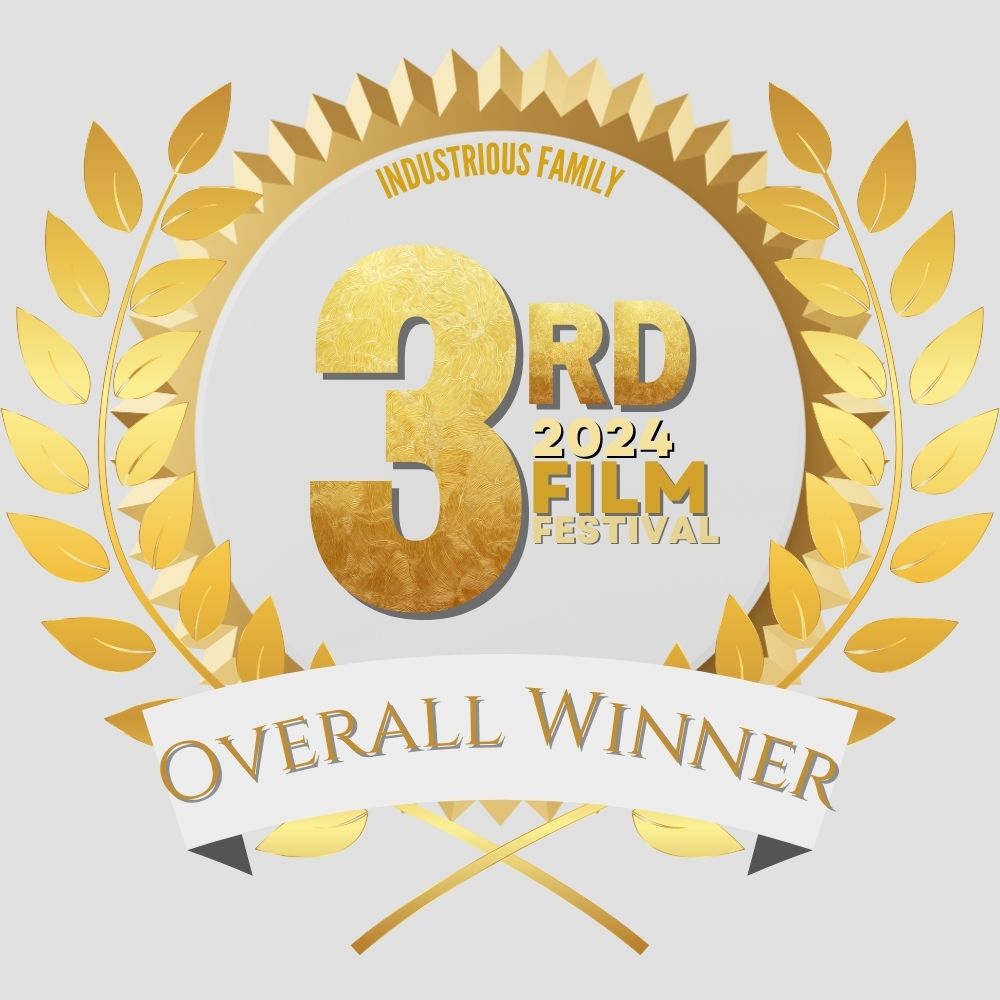
#RebuildChristianArt Blog
An aid for families encouraging the reconstruction of the social fabric by sparking interest in Christian art and culture. Find beautiful novels, films, music, food and customs.
What's New At The Studio
-
Enjoy a Free Trial of Industrious Family Theater – Subscribe Today!
Jul 09, 25 10:20 AM
-
Celebrate Freedom with Film: The Best Movies for July 4th
Jul 03, 25 08:10 PM
-
🎉 We’ve Reached $20,130 — Thank You!
Jul 01, 25 01:27 PM
